Regulation
FTX Founder Sam Bankman-Fried’s Family Accused Of $100M Illicit Political Donation
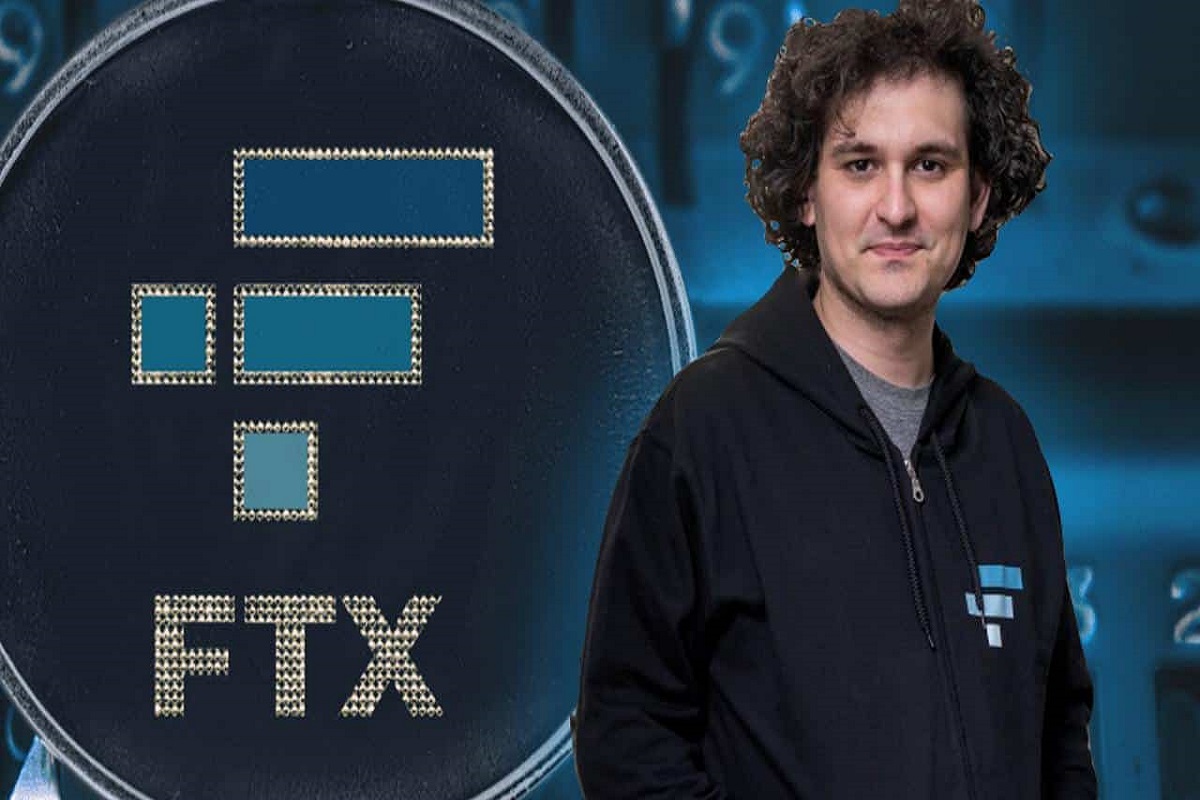
New allegations have surfaced surrounding Sam Bankman-Fried (SBF), the founder of the now-collapsed crypto exchange FTX. SBF’s family is now accused of being involved in a $100 million illicit political donation scheme. Moreover, these claims can lead to intense legal trouble for the accused.
Sam Bankman-Fried’s Family Accused Of Illegal Political Donation
Emails disclosed by The Wall Street Journal (WSJ) have brought to light the extensive involvement of SBF’s family in orchestrating these political contributions. Furthermore, an important point to note is that these donations were allegedly funded by misappropriated FTX customer assets.
Prosecutors asserted that Bankman-Fried orchestrated a sprawling influence campaign ahead of the 2022 election, leveraging stolen customer funds to the tune of over $100 million. The newly revealed emails suggest that key family members played pivotal roles in the scheme. These include SBF’s parents, Joe Bankman and Barbara Fried, along with his brother, Gabriel Bankman-Fried. They managed these funds and directed donations to various political causes and candidates.
Moreover, Joe Bankman, a Stanford University law professor, is accused of advising on financial strategies to facilitate these political donations. The WSJ reports that emails show Joe Bankman’s direct involvement in the illicit operations, indicating he was well aware of the illegal straw-donor scheme.
Barbara Fried, who co-founded the political action committee (PAC) Mind the Gap, allegedly used her position to channel funds towards progressive groups and initiatives. Meanwhile, Gabriel Bankman-Fried is accused of directing donations to pandemic prevention efforts. This coordinated effort to disperse funds across the political spectrum aimed to amplify their influence and support favored causes without drawing attention to the origin of the donations.
Also Read: Fmr Obama Solicitor Says Regulators Are “Deliberately Debanking Crypto”
Former FTX Execs Also Involved
David Mason, ex-chairman of the Federal Election Commission (FCE), weighed in on the matter. Mason highlighted that the evidence presented in the emails constituted “strong evidence” of Joe Bankman’s knowledge and participation in the scheme.
The political donation scheme, as detailed by the WSJ, also involved Ryan Salame and Nishad Singh, two former FTX executives. They have already pleaded guilty to participating in the illegal straw-donor scheme. According to prosecutors, Salame directed funds to Republican candidates to dissociate the contributions from Bankman-Fried, while Singh supported liberal candidates.
The allegations have led to several legal proceedings, with the potential for significant legal liabilities for those involved. Moreover, Mason’s remarks underscore the gravity of the situation. It suggests that Joe Bankman could face direct legal consequences under campaign finance laws if the allegations are substantiated.
Despite the mounting evidence, a spokesperson for Joe Bankman has refuted claims of his involvement. They stated that Bankman had “no knowledge of any alleged campaign finance violations.” This defense, however, stands in stark contrast to the detailed emails that have surfaced.
Also Read: Just-In: Mt. Gox Starts Repaying Creditors, Bitcoin To Dip Further?
The presented content may include the personal opinion of the author and is subject to market condition. Do your market research before investing in cryptocurrencies. The author or the publication does not hold any responsibility for your personal financial loss.
Regulation
USDC Issuer Circle Set To File IPO In April, Here’s All

USDC issuer Circle is reportedly set to file its initial public offering (IPO) in April as part of the firm’s plans to finally go public. The stablecoin issuer is allegedly already working with top financial institutions to achieve this move.
Circle To File IPO In Late April
According to a Fortune report, Circle is looking to file its IPO in late April, although the listing period remains uncertain. The report noted that when a company files to go public, its shares usually begin trading four weeks later, indicating that the listing could occur in May. However, there is also a scenario where the IPO process could drag on for months.
The stablecoin issuer is reportedly working with investment banks JPMorgan Chase and Citi to achieve its long-anticipated IPO. The firm had previously tried to go public in 2021 under a SPAC arrangement with a shell company.
The US SEC failed to sign off on this arrangement back then, and the company eventually scrapped these IPO plans by the end of 2022 when the crypto exchange FTX collapsed and the broader crypto market experienced a downturn.
Revelation about Circle’s IPO plans comes just days after the stablecoin issuer partnered with NYSE’s parent company to explore USDC’s use in traditional finance (TradFi). Meanwhile, the USDC stablecoin recently launched in Japan following approval from the country’s regulator. Notably, USDC is the first and only global dollar stablecoin approved under Japan’s stablecoin framework.
An Easier Path Now For The Stablecoin Issuer
Circle will likely face less resistance for its IPO plans under the current SEC administration. Under acting Chair Mark Uyeda, the Commission has shown its willingness to work hand in hand with crypto firms, which was missing under Gary Gensler’s administration.
US SEC Chair nominee Paul Atkins has also shown his willingness to change the approach that Gensler’s administration adopted towards crypto firms. During his nomination hearing, the SEC Chair nominee promised to prioritize providing regulatory clarity for the industry.
Circle’s IPO listing would be the biggest since the top crypto exchange Coinbase went public in 2021. Interestingly, Coinbase owns an equity stake in the crypto firm.
The firm’s USDC is currently the second-largest stablecoin by market cap, only behind Tether’s USDT. The stablecoin industry is heating up as more financial institutions look to develop their own stablecoin.
Donald Trump’s World Liberty Financial recently revealed plans to launch its USD1 stablecoin, while asset manager Fidelity is also considering doing so.
Disclaimer: The presented content may include the personal opinion of the author and is subject to market condition. Do your market research before investing in cryptocurrencies. The author or the publication does not hold any responsibility for your personal financial loss.
Regulation
Japan Set To Classify Cryptocurrencies As Financial Products, Here’s All

Cryptocurrency investors in Japan are bracing for impact following a plan to reclassify digital assets as financial products. While the plan has elicited excitement from cryptocurrency enthusiasts in the Far East, the ambitious plan will have to scale several legislative hurdles.
Japan Targets Reclassification Of Cryptocurrencies As Financial Products
According to a report by Nikkei, Japan’s Financial Services Agency (FSA) is inching toward classifying cryptocurrencies as financial products. Per the report, the FSA intends to achieve the reclassification via an amendment to the Financial Instruments and Exchange Act.
Currently, digital assets in Japan are considered crypto assets conferred with property rights and seen as payment means. Under the FSA’s plans, cryptocurrencies in Japan will be treated as financial products in the same manner as traditional financial products.
The FSA says it will adopt a slow and steady approach toward the reclassification, carrying out “a private expert study group” to test the waters. If everything goes according to plan, the FSA will submit the amended bill to Parliament in early 2026.
The classification of cryptocurrencies as financial products will have far-reaching consequences for the local ecosystem. Experts say treating cryptocurrencies as financial products will bring Japan closer to a crypto ETF launch amid a changing regulatory landscape.
Furthermore, the move may lower current cryptocurrency taxation for local investors since existing capital market rules will apply to the asset class.
A Fresh Bill For Crypto Insider Trading Is Underway
Apart from the reclassification, the FSA disclosed plans for new legislation against insider trading. The move flows treating cryptocurrencies as financial products and will strengthen existing investor protection rules.
“It is a direction to establish a new insider trading regulation that prohibits trading based on unpublished internal information,” said the FSA. “We will develop laws to prevent unfair transactions.”
However, Japan’s cryptocurrency scene is heating up to a boil, driven by local and international players. Last week, stablecoin issuer Circle secured approval from the FSA for USDC with top exchanges set to list the stablecoin.
Japan’s Metaplanet has tapped Eric Trump to join its Strategic Board of Advisors as it continues to load up Bitcoin.
Disclaimer: The presented content may include the personal opinion of the author and is subject to market condition. Do your market research before investing in cryptocurrencies. The author or the publication does not hold any responsibility for your personal financial loss.
Regulation
Kentucky Governor Signs Off On ‘Bitcoin Rights’ Bill, Strengthening Crypto Protections


In what is being dubbed a major development in the crypto regulation space, the Governor of the US state of Kentucky, Andy Beshear, has signed the ‘Bitcoin Rights’ bill into law. The law promises to safeguard protections for Bitcoin (BTC) users.
Bitcoin Rights Bill Comes Into Effect
Crypto regulations continue to evolve under pro-crypto US President Donald Trump’s administration. In the latest development, Kentucky has become the newest state to enshrine protections for digital asset users.
In an X post published on March 24, crypto advocacy group Satoshi Action Fund announced that Governor Beshear had signed the much-anticipated Bitcoin Rights bill into law. The post stated:
The right to self-custody, run a node, and use of digital assets is now protected for millions of Americans without fear of discrimination.
The bill was first introduced to the Kentucky House by Rep. Adam Bowling on February 19. According to the bill’s description, it seeks to safeguard users’ rights to use digital assets and self-custody wallets. Additionally, it aims to prohibit local zoning changes that discriminate against crypto mining operations.
The legislation outlines guidelines for running a digital asset node and excludes digital asset mining from money transmitter license requirements. It also clarifies that crypto mining or staking is not considered an offer or sale of securities.
On February 28, the bill passed Kentucky’s House of Representatives with a unanimous vote of all 91 representatives in favor. It later passed the Kentucky Senate on March 13, receiving backing from all 37 senators.
Kentucky’s proactive stance toward cryptocurrencies isn’t new. Earlier this year, the state became the 16th US state to introduce legislation seeking to create a Bitcoin strategic reserve.
Meanwhile, neighboring state Arizona is also joining the crypto movement. A recent X post by Bitcoin Laws revealed that Arizona’s House Rules Committee has passed two Bitcoin reserve bills — SB1373 and SB1025. These bills will now head to a full floor vote.
Renewed Optimism Under Trump Administration
Following Trump’s victory in the November presidential election, cryptocurrency regulations in the US are evolving rapidly, with many states introducing legislation aimed at strengthening their digital asset ecosystems and attracting crypto businesses.
Positive changes in crypto regulations are encouraging industry businesses to expand. For instance, leading crypto trading platform Coinbase recently announced plans to hire 1,000 employees in the US.
The Trump administration has also witnessed several lawsuits being dropped against major crypto entities, including Kraken, Coinbase, Gemini, and others. At press time, Bitcoin trades at $87,399, down 0.2% in the past 24 hours.

Featured Image from Unsplash.com, chart from TradingView.com

Editorial Process for bitcoinist is centered on delivering thoroughly researched, accurate, and unbiased content. We uphold strict sourcing standards, and each page undergoes diligent review by our team of top technology experts and seasoned editors. This process ensures the integrity, relevance, and value of our content for our readers.
-

 Market17 hours ago
Market17 hours agoIs CZ’s April Fool’s Joke a Crypto Reality or Just Fun?
-

 Market16 hours ago
Market16 hours agoBitcoin Price Battles Key Hurdles—Is a Breakout Still Possible?
-

 Bitcoin14 hours ago
Bitcoin14 hours agoBig Bitcoin Buy Coming? Saylor Drops a Hint as Strategy Shifts
-
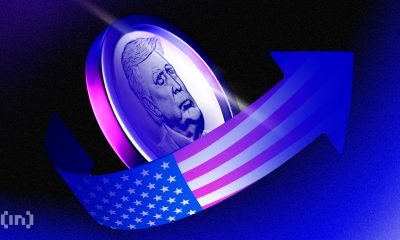
 Market23 hours ago
Market23 hours agoTop 3 Made in USA Coins to Watch In April
-

 Market21 hours ago
Market21 hours agoEthereum Price Faces a Tough Test—Can It Clear the Hurdle?
-

 Bitcoin13 hours ago
Bitcoin13 hours ago$500 Trillion Bitcoin? Saylor’s Bold Prediction Shakes the Market!
-

 Market20 hours ago
Market20 hours agoSolana (SOL) Holds Steady After Decline—Breakout or More Downside?
-

 Ethereum19 hours ago
Ethereum19 hours ago$2,300 Emerges As The Most Crucial Resistance






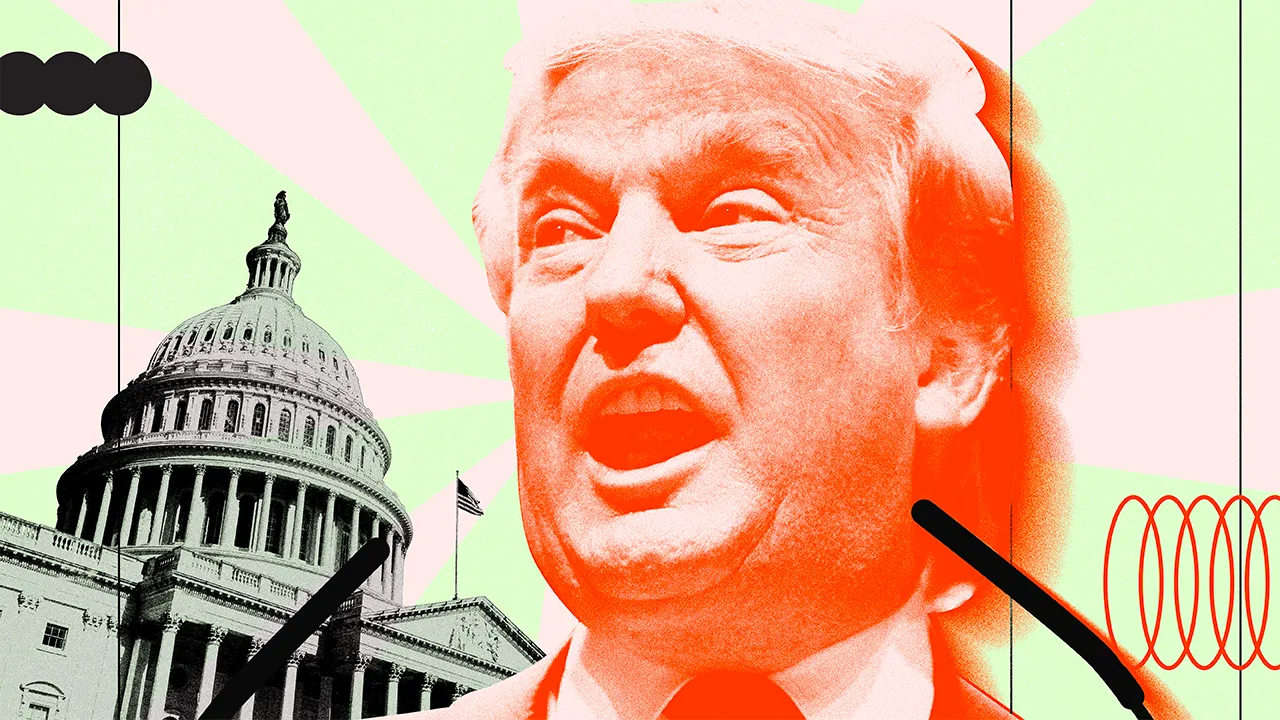
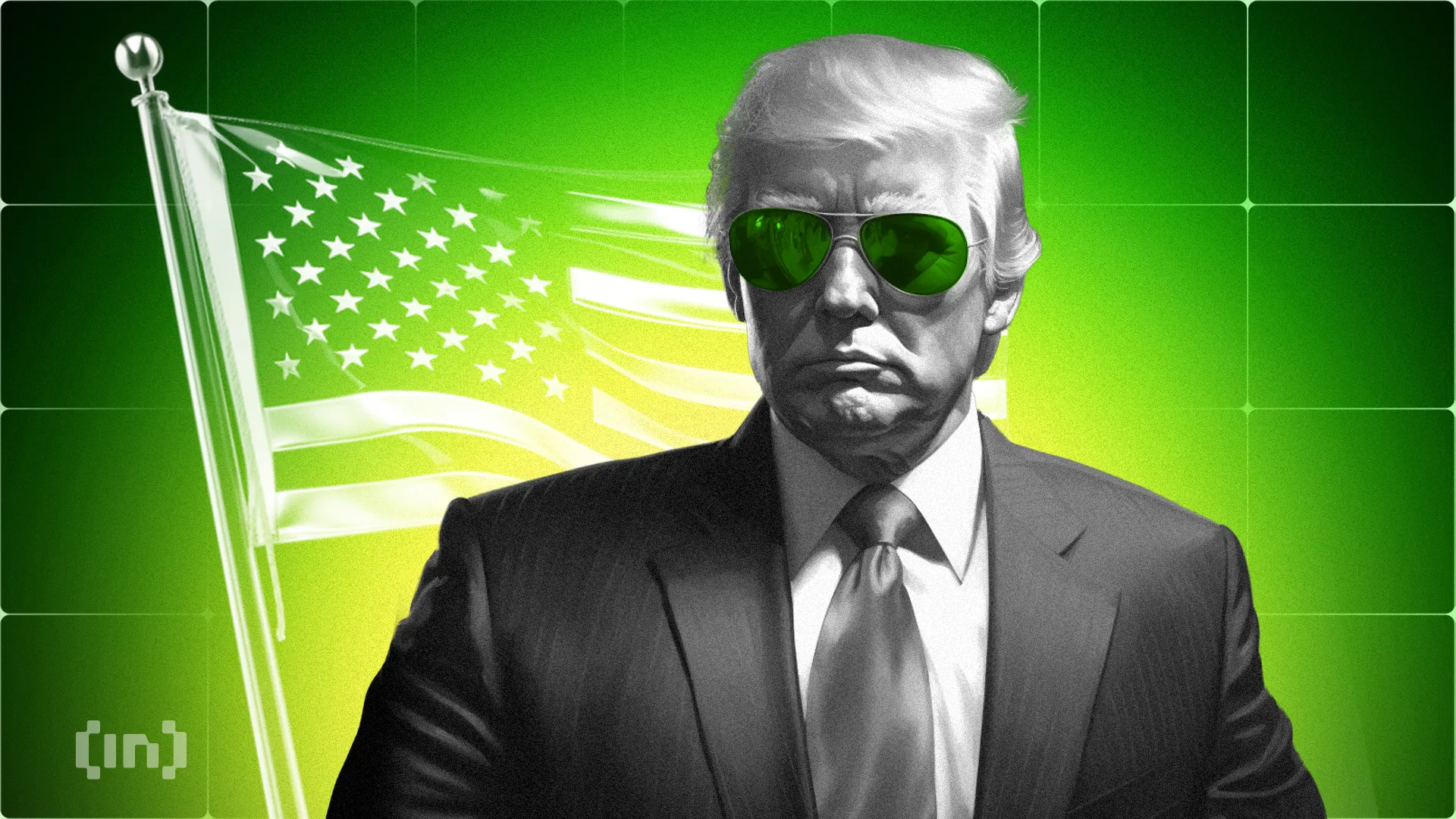

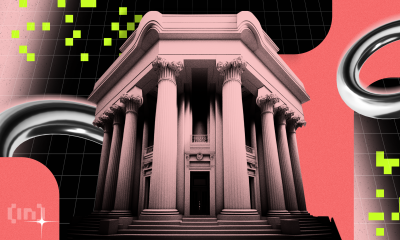












✓ Share: